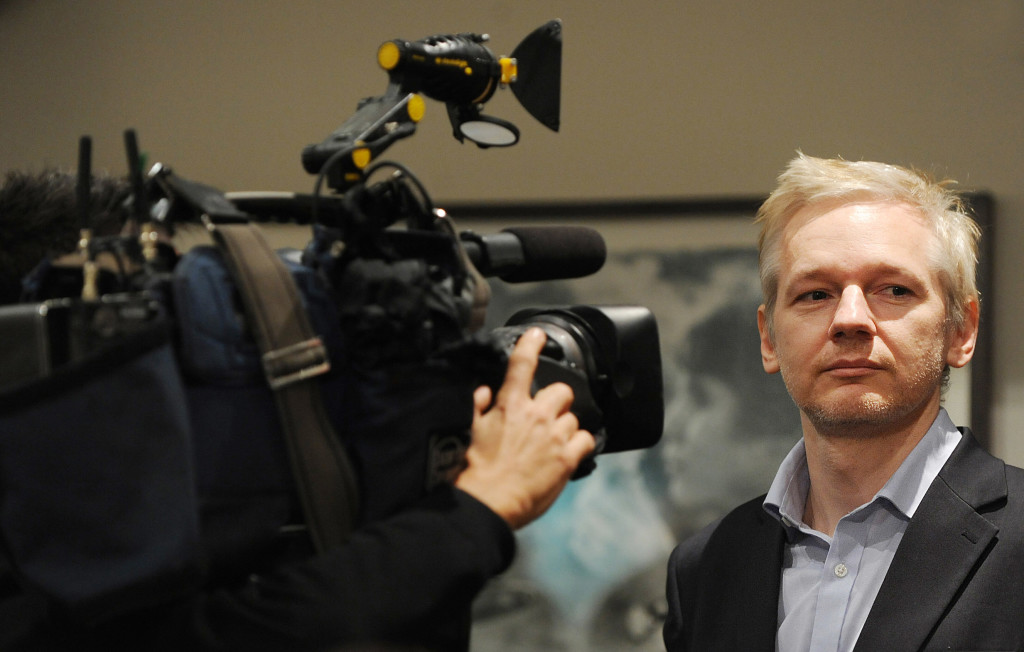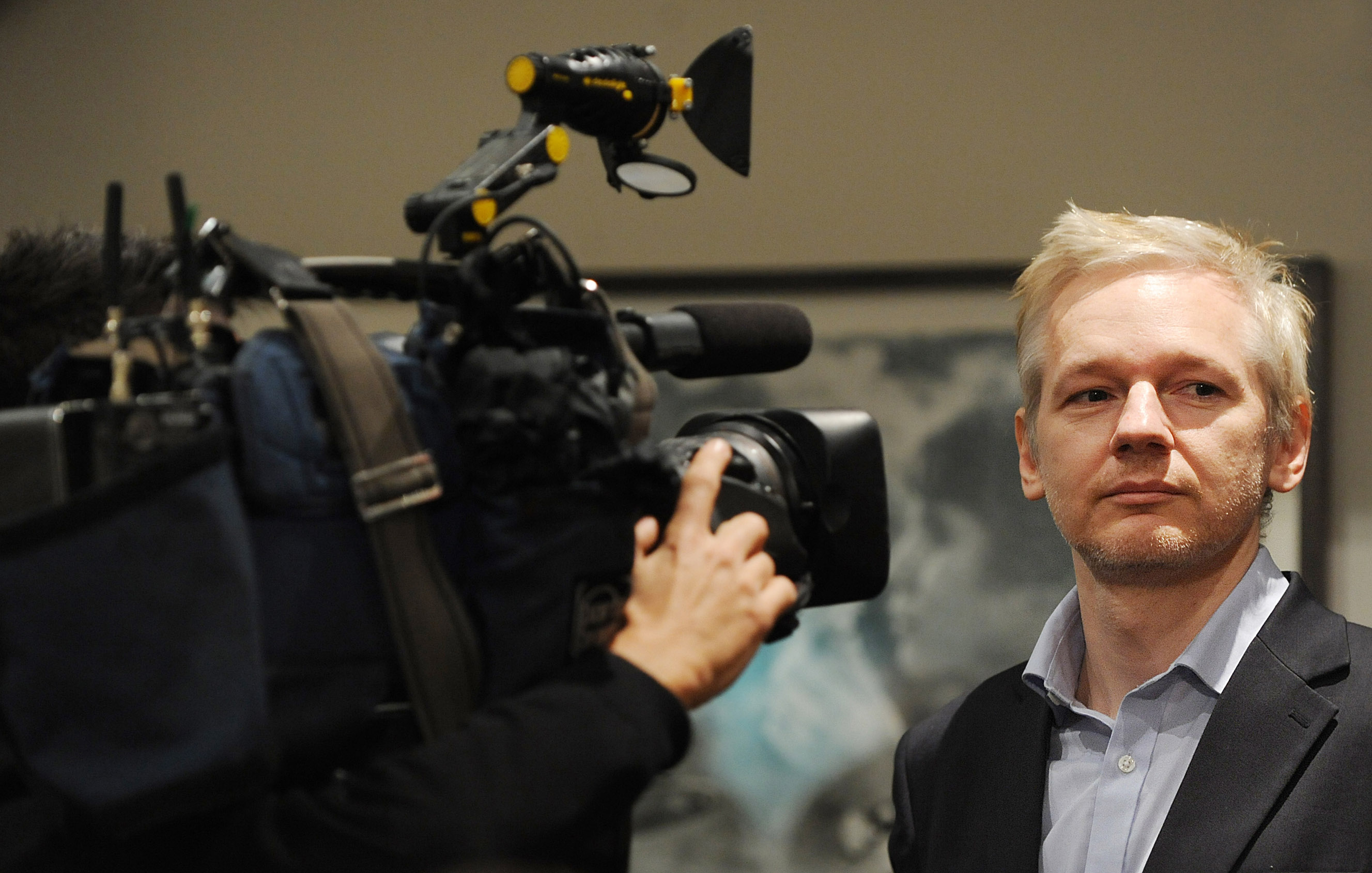The “Indie” Journalists At the Center of the Bradley Manning Trial

March 15, 2013
Share
One reporter had the scoop on the day after the 2012 election, when the lawyer for Bradley Manning, the young Army private accused of leaking more than 500,000 classified documents to WikiLeaks, stood up in the courtroom and announced that Manning would be taking responsibility for providing some of the documents.
“This was an incredible development in the court-martial,” recalls Kevin Gosztola, an independent journalist covering the hearings for the website Firedoglake. With no mainstream reporter in attendance, suddenly, Gosztola was being called upon and linked to by news organizations all over the world, including FRONTLINE.
“That’s when I realized that I, as a more independent journalist, had a critical role to play,” he says.
Weeks later, on the two days Manning himself took the stand to testify about his treatment in military prison, more news organizations were represented, but most left shortly afterwards. Critics turned up the heat on news organizations for not paying closer attention to the hearings. The New York Times own ombudsman took the paper to account.
Gosztola is reluctant to beat up on the established news organizations — he says he recognizes many are strapped for resources these days — but still thinks the lack of coverage overall has been “shameful.”
He doesn’t let other independent journalists off the hook though. “We’re missing established journalists, but we’re missing independent journalists” Gosztola says. “We’re missing other journalists from organizations based in the DC area who could be covering this story. I don’t understand why there aren’t more journalists covering these proceedings.”
The military justice system is not always easy to report on. There’s no rule that requires the military to make it easy for court reporters, and the amount of access can vary wildly. In the Manning proceedings, the government does not provide access to court filings, motions, or transcripts. In this regard, the military commissions at Guantanamo are a model of transparency in comparison.
Because there is no official court record, the public is entirely dependent on the accounts of the reporters on-scene — the few who can fit into the courtroom making notes longhand, or the rest who report from the media center, typing down words and details frantically and hoping they don’t make any mistakes.
Without question, the most thorough and reliable record of the military court proceedings is being maintained not by any journalistic institution or nonprofit law center, but by self-funded, independent journalist Alexa O’Brien, who painstakingly transcribes each proceeding and posts it all to her website. She says never expected to take on such an important role, becoming a reference source for journalists covering the case and that she was simply motivated by her dissatisfaction with the existing coverage.
“It really bothered me that that there was so much information that was not in the public realm I didn’t have an answer to, to understand what was going on in this investigation and prosecution of Bradley Manning,” O’Brien explains.
Like Gosztola, she has been shocked at times when she’s been the only member of the press present. “I have been in court where I’ve gone as a member of the public with a pen, a pad and paper, not credentialed, where there have been no credentialed press in the courtroom.”
Both O’Brien and Gosztola are open about the fact that they are pro-Bradley Manning partisans who consider him a hero, and that their analysis reflects that bias. “I’ll admit there is a bias in my coverage,” says Gosztola. “Even if that exists, we are doing something the media needs in this country, because they themselves are strapped economically.”
“There’s nothing more objective than a transcript,” adds O’Brien. And no one has been able to find any problems with their accounts of what transpired in court; to the contrary, journalists find O’Brien’s transcripts reliable enough to use as a reference.
The biggest problem may lie with the lack of institutional depth — or any institutional support at all. Who maintains the transcripts if Alexa O’Brien gets sick? Who covers breaking developments in court if Kevin Gosztola can’t make the trip from Illinois? None of these independent reporters have a bureau to rely on for backup, no home office to call for support. All are working on a shoestring budget, and none live close to Maryland, where the trial is being held. They’re a dedicated group, but relying on them alone to maintain a record of this trial may be asking too much.
Related Documentaries
Latest Documentaries
Related Stories
Related Stories
Explore
Policies
Teacher Center
Funding for FRONTLINE is provided through the support of PBS viewers and by the Corporation for Public Broadcasting, with major support from Ford Foundation. Additional funding is provided the Abrams Foundation, Park Foundation, John D. and Catherine T. MacArthur Foundation, Heising-Simons Foundation, and the FRONTLINE Trust, with major support from Jon and Jo Ann Hagler on behalf of the Jon L. Hagler Foundation, and additional support from Koo and Patricia Yuen. FRONTLINE is a registered trademark of WGBH Educational Foundation. Web Site Copyright ©1995-2025 WGBH Educational Foundation. PBS is a 501(c)(3) not-for-profit organization.





















